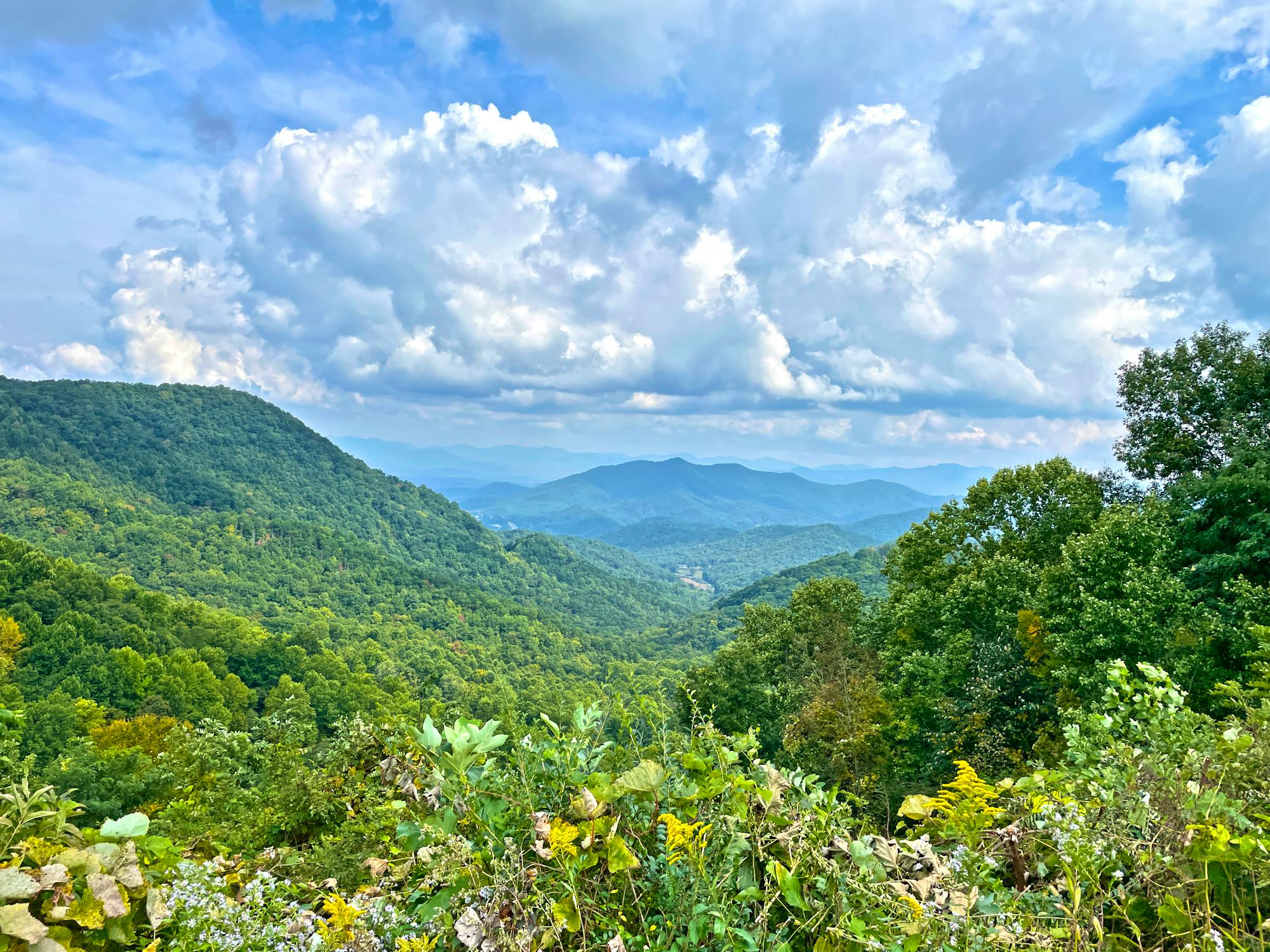Tweet"For more than a decade, conservation organizations like Defenders of Wildlife have advocated for the Nantahala-Pisgah Forest Plan to establish clear standards and guidelines for the conservation and recovery of rare species. While the plan falls short in many respects, we were pleased that a Special Interest Area was designated for portions of the ecologically important habitats that were threatened by the Southside Timber Project. However, the Southside Timber Project is still being pushed forward and could damage the ecological integrity of this important area by affecting the habitats of rare species like green salamanders and cerulean warblers, as well as federally listed species like the northern long-eared bat. Allowing an egregious project like this to move forward erodes the public trust and signals that the Forest Service is unwilling to comply with its own plan."
On Wednesday, a coalition of conservation groups filed a federal lawsuit against the U.S. Forest Service, alleging the agency’s plans to log a sensitive area of the Nantahala National Forest violate federal law.
The Southern Environmental Law Center filed the challenge on behalf of the Center for Biological Diversity, Chattooga Conservancy, Defenders of Wildlife, MountainTrue, and Sierra Club. The lawsuit was filed in federal district court for the Western District of North Carolina.
The lawsuit centers around parts of the Southside Timber Project that aim to log areas near the Whitewater River in the Nantahala National Forest. The landscape boasts stunning waterfalls, towering oak trees, and critical habitat for rare species. Both the Forest Service and State of North Carolina have recognized the area slated for logging as an exceptional ecological community with some of the highest biodiversity values in the state.
Because of the scenic beauty and ecological importance of the area, the Forest Service designated it as a “Special Interest Area” in the recently published Nantahala-Pisgah Forest Plan. Destructive projects like logging and roadbuilding are significantly restricted in Special Interest Areas. The agency is contradicting its own designation with this logging project.
Released last year, the Nantahala-Pisgah Forest Plan falls short on many levels and fails to adequately protect the Nantahala and Pisgah National Forests. As a result, more than 14,000 people objected to the plan.
Limiting logging in the area subject to the lawsuit was one of the few things the Nantahala-Pisgah Forest Plan got right, yet the Forest Service is poised to undermine it by plowing ahead with this reckless and unpopular timber project.
Below are quotes from conservation groups about the litigation:
"For more than a decade, conservation organizations like Defenders of Wildlife have advocated for the Nantahala-Pisgah Forest Plan to establish clear standards and guidelines for the conservation and recovery of rare species," said Ben Prater, Southeast Program Director for Defenders of Wildlife. "While the plan falls short in many respects, we were pleased that a Special Interest Area was designated for portions of the ecologically important habitats that were threatened by the Southside Timber Project. However, the Southside Timber Project is still being pushed forward and could damage the ecological integrity of this important area by affecting the habitats of rare species like green salamanders and cerulean warblers, as well as federally listed species like the northern long-eared bat. Allowing an egregious project like this to move forward erodes the public trust and signals that the Forest Service is unwilling to comply with its own plan."
“Logging in this area so harmful that it is inconsistent even with a Forest Plan that fails to protect the values that make the Nantahala National Forest exceptional,” Patrick Hunter, Managing Attorney of the Southern Environmental Law Center’s Asheville Office, said. “The Forest Service must scrap this reckless logging project in order to comply with federal law.”
“The Southside timber sale shows that Forest Service leaders are more interested in logging than protecting rare and beloved landscapes,” said Will Harlan, Southeast Director at the Center for Biological Diversity. “The public strongly opposes logging this ecologically unique forest beside a trout stream and waterfall, but the Forest Service wants to cut it down anyway. This is a clear and heartbreaking example of the conflicts we can expect to see under the new Forest Plan.”
“The Southside Project is a case study of the Forest Service’s reckless resolve to push harmful logging onto exceptional landscapes,” said Nicole Hayler, Director of the Chattooga Conservancy. “Logging in this area along the Whitewater River is a prime example of the root of the problem: deeply flawed, perverse incentives driving the Forest Service to hit mandated timber targets, which is why the entire Southside Project should be dropped.”
"With both the Forest Plan and this Southside Timber Sale, Forest Service leaders have put commercial logging first and ignored federal law and overwhelming public support for conserving our most beloved natural areas and landscapes,” Josh Kelly, public lands field biologist for MountainTrue, said. “Pisgah and Nantahala National Forests are big enough to accommodate sustainable logging practices and create new early successional habitats for hunters without destroying an area that the Forest Service itself has deemed an 'exceptional ecological community' with 'features that are not found anywhere else in [...] the Eastern United States.' Unfortunately, it looks like it's going to take a public interest lawsuit to get the Forest Service to act responsibly and comply with federal law."
"Logging in this particular scenic and ecologically rich area, to supposedly accomplish management goals that can easily happen in more appropriate places, is exactly why we have longstanding concerns about the Forest Service's planning process,” said David Reid, Sierra Club National Forest Issue Chair.
For over 75 years, Defenders of Wildlife has remained dedicated to protecting all native animals and plants in their natural communities. With a nationwide network of nearly 2.1 million members and supporters, Defenders of Wildlife is a leading advocate for innovative solutions to safeguard our wildlife for generations to come. To learn more, please visit https://defenders.org/newsroom or follow us on X @Defenders.
Media Contact
News

Defenders Receives Advocacy Organization of the Year Award





